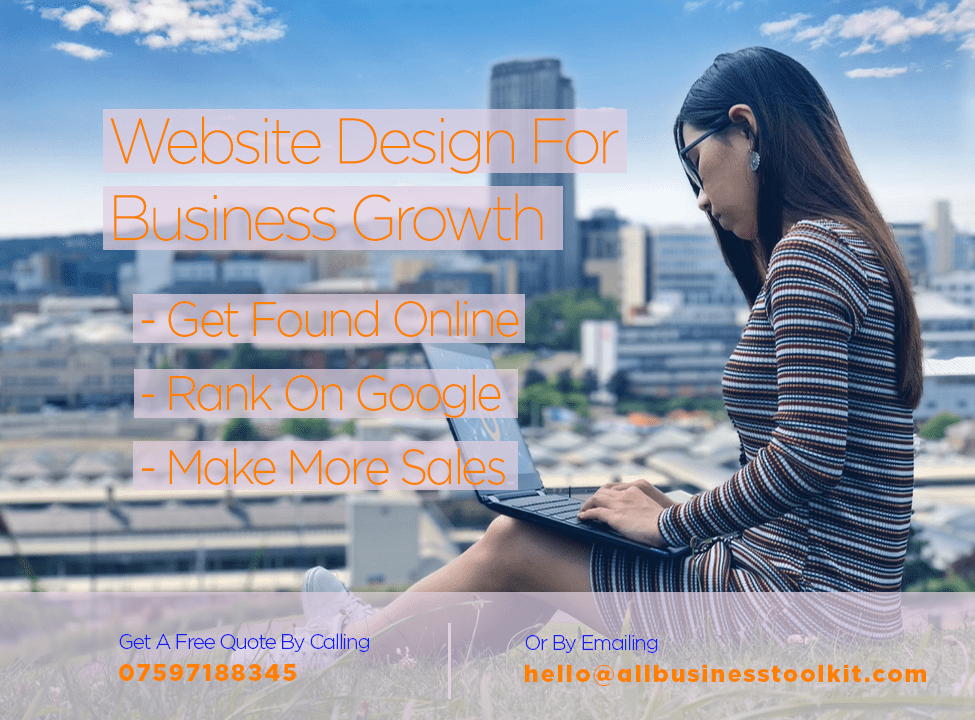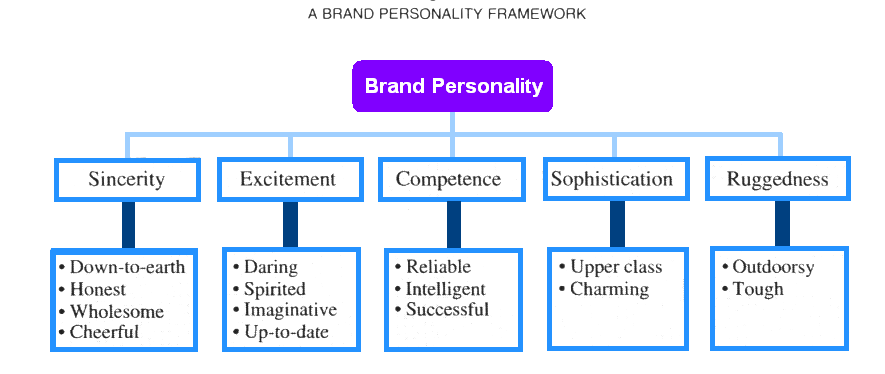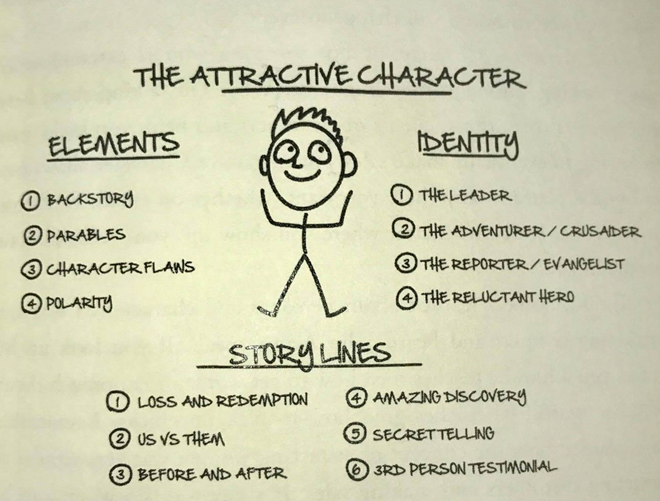I have always tried to understand what is takes to build an effective brand. People connect with people and we will always value friendship and having an emotional link.
What is brand personality? Brand personality is the direct action of bringing your business to life. It is a combination of logistical behaviours within your business, and emotional patterns that you associate through imagery and other mediums of communication. It is associating your business with traits that appeal to your audience to form something people can connect with on an emotional level. This way people can bond and become friends with your business.
In this article, I will take you through all the components of a brand that form its personality, and how these effect purchasing habits.
1. What Is Brand Personality?
Forming a relationship with the consumer and making a valued impression that they will remember when they hear about your company is what brand personality is all about. This suggests that, like friendships, a business has its own emotional and behavioural characteristics that build friendships.
Two competing brands can be very similar in their functions they deliver. Yet they can have very different personalities.For example, Ford Fiesta, Volkswagen Polo and the Renault Clio all perform the same in regards to the size, speed and price. Yet, they all have very different personalities. Moreover, people have and form different bonds with these firms.Overall, it is having a traits that consumers can relate too.
2. Why Is Brand Personality Important?
When customers contact with your business, brand personality is crucial because it creates a more personal experience. A good brand personality associates anything pleasant with which the customer can identify and is condensed into emotive components. In the viewpoint of the consumer, personality features might be perceived as valuable. With this we can begin to associate our business with an exciting way of life making our business more appealing to our customers. When strongly activated in consumer memory it will also affect consumer behaviours and attitudes toward the brand.
3. The Three Appeals Of Brand Personality
A brand personality comes in three forms. The three forms are known as personality appeals. These are part of the brand personality that we are able to bond with.
Lets look at these three appeals below:
- Sensual appeal – This is part of the personality that is created by the way it looks, sounds and feel like. For example, Mercedes is know for its sensual appeal by being know for the comfort it provides during the ride. It can also include the characteristics on the packaging and the design and functionality of the store and website.
- Rational appeal – this is how the product performs. Does it meet the brand promise of a high quality for high price? Or does it just do the job for a lower price?
- Emotional appeal – This is the most powerful element of the brand personality as it focuses on the psychological rewards it offers. This focused on the mood a person feels when interacting with your business. For example, Apple has a status emotional appeal and it is embedded into its personality by sophistication. As well as some brand image factors such as, price, simplicity and smooth design.
You should always aim to hit each of these points when communicating your business to your target audience.
4. Brand Personality Traits
Consumers view retail brands as having distinct personalities such as excitement and sincerity that are similar to the set of human personality characteristics. Below, is a set of personality traits that capture the full spectrum of a brand personality.
Traits Of Brand Personality
Sincerity
Sincerity is being seriousness, open and honest. If you do things with sincerity, you will gain peoples trust. The #NO 1 goal for businesses is to transition people from first liking your business to knowing your business. If you apply Sincerity people will be more willing to make a purchase and more willing to accept your apology if you make a mistake.
Excitement
Excitement is having a feeling of joy, exhilaration, or upheaval. We all want to have fun and enjoy our lives, and excitement is what brings us that happiness.
Competence
A competent business, or a competent person someone that can carry out a task efficiently. A competent business has the necessary skills, experience and knowledge to manage value given to the consumer. In addition, in an ethical and safe way. An effective business is the best in the industry and people have the confidence that you can deliver. Especially in a B2B setting.
Sophistication
Sophistication is being comfortable in social situations. This includes being confident, cultural with a favourable appeal. Moreover, in business in is demonstrating you believe in the great importance of things that are socially important. You may feel it is being classy and elegant. However, I like to think sophistication as having an appeal of status by doing things in the right manner. It is equally important to point out that in business it is to deliver new and create ways of solving problems. In business I like to think of sophistication as a more feminist trait. This is because it is being sensitive and understanding of the world around you.
Ruggedness
Ruggedness is the ability of being strong or powerful. Moreover, it is dealing with though situations in a direct way, being assertive and without hesitation. This essence of power is usually being attentive to the surrounding environment. However, this does mean it reduces the appeal of being delicate. Overall, I like to think of this trait in business as the more masculine trait of the your brands personality.
5. Brand Image Factors
A brand image is made up of a complex mix of non-physical traits that, when combined with a physical appearance, produce a brand image. As you would expect the brand image does reflect on the business personality. This includes key messages that highlight your products attraction, simplicity of use, functionality, and overall value of a product.
Attractive Character Model
I like to utilise the attractive character model since it highlights all of the elements that make your company appear more real and alive. You can always find ways how to incorporate the personality traits into each of the attractive character model.
Read more about brand image here…
6. Trait Theory In Marketing
Trait theory in psychology shows us that people subconsciously judge people by their patterns of behaviour. More importantly, these patterns of behaviour are consistent. This is important in business because it explains that if a person has consistent behaviour, it means they are predictable.
If this person possesses predictable positive characteristics such as reliability or honesty, they will be seen as pleasant and trustworthy. If a person exhibits negative characteristics such as being unreliable and dishonest, they will be seen as unlikable and untrustworthy.
This is also true in business, and it is a direct link to the customer branding journey’s know, like, and trust component. They are more formally recognised as stable traits because they have predictable traits. When it comes to creating connections, having steady positive attributes is beneficial since it leads to people liking you, and then if you prove you are trustworthy enough, they will trust you.
7. Personality Theory In Marketing
The best known and most widely used personality theory and measure is the model known as “The Big-Five”, which was developed over many years with contributions by several researchers. The Big-Five comprises the dimensions of neuroticism, extraversion, openness to experience, agreeableness, and conscientiousness.
Personality-Driven Marketing is the practice of targeting people based on their underlying psychological profiles as well as their prior behaviours and clearly stated preferences. You can cleverly bring the Personality theory into your brand characteristics strategy to fine-tune your brand.
- Extroversion – which is made up by assertiveness and enthusiasm
- Neuroticism – withdrawal and validity
- Agreeable – politeness and compassion
- Conscientious – industriousness and orderliness
- Openness to experience – openness and intellect
Because of the increasing rivalry in marketing, branding innovation has proven to be crucial. Personality’s proven effects on behaviour promote attachment to the symbolic meaning of human characteristics. This has a direct correlation to the development of a customer’s emotional relationship to your brand. As a result, the Big-Five has been used in branding research and strategy to examine consumer behaviour, perceptions, and intentions. Consumers symbolically link human personality features to a brand based on their perceptions, in contrast to the human personality context, where individuals report on their views or thoughts.
So, let’s pretend we’re doing a branding exercise and we’re trying to come up with a name for a camping store. We believe that our brand’s image of being outdoorsy will assist us. Ruggedness is a personality attribute that appears to be outdoorsy. We can rely on the Big Five for assistance. However, it is a matter of personal preference. To establish my brand personality, I would try to use two of the major five. The first three are assertiveness, diligence, and transparency. The brand personality appeals would then be used to further develop these ideas.
Conclusion
When someone interacts with your company, they acquire a sense of its personality. These are created in a person’s psyche as a result of a combination of characteristics and qualities in their behaviour. When these traits lead to continuous patterns of behaviour, they become dominant features that can be further enhanced by the big five personality traits.





![Market Research? BEST [Methods] For Data Analysis! Market Research? BEST [Methods] For Data Analysis!](https://allbusinesstoolkit.com/wp-content/uploads/2018/12/google-76522_960_720.png)

